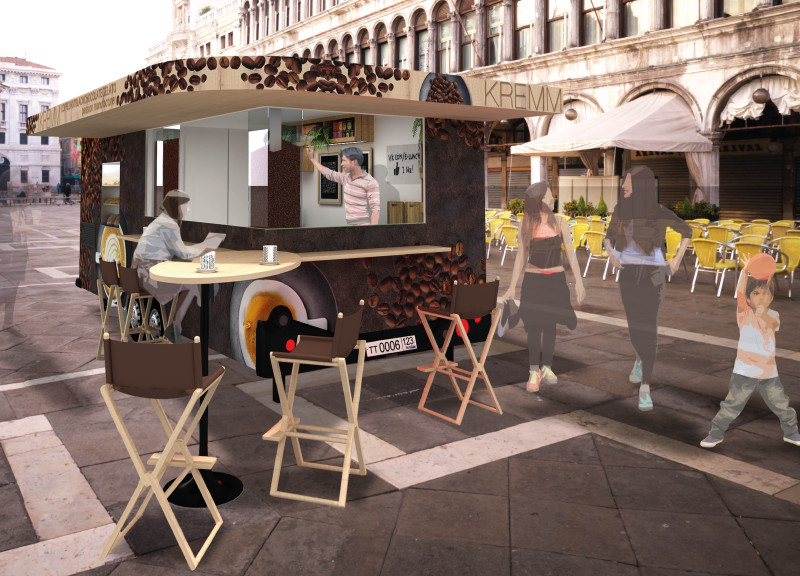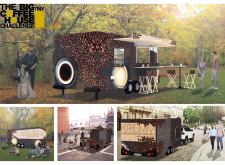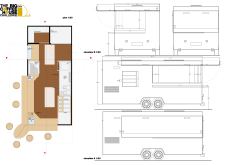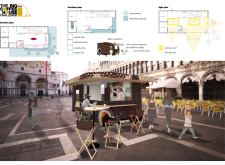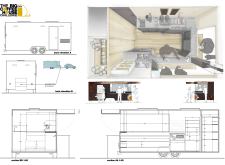5 key facts about this project
## KREMM Tiny Coffee House Project Overview
Located in urban environments, the KREMM Tiny Coffee House is part of the "Big Tiny Coffee House Challenge" and aims to provide a functional mobile coffee service that fosters social interaction. This design responds to both serene park settings and bustling city squares, creating an inviting atmosphere for users.
### Spatial Organization and Efficiency
The layout of KREMM is carefully organized into distinct zones for working, preparation, cleaning, and storage, ensuring operational efficiency. An open service counter emphasizes interaction between baristas and patrons, facilitating a smooth flow during high-traffic periods. Key areas within the structure include:
- **Working Area**: Strategically located for optimal workflow, equipped with essential coffee-making appliances.
- **Preparation Zone**: Designed with organized storage for coffee beans and pastries, allowing for quick access and efficient service.
- **Cleaning Zone**: Positioned to streamline cleaning processes while adhering to hygiene standards.
- **Storage Area**: Optimizes vertical space for ingredient and equipment storage, minimizing ground-level clutter.
### Material Selection and Sustainability
The selected materials reflect a commitment to functionality and aesthetic appeal. Notable materials utilized include:
- **Plywood**: Employed for interior cabinetry and structural elements, providing both durability and a lightweight framework.
- **Stainless Steel**: Used for surfaces and appliances, facilitating hygiene and ease of maintenance.
- **Graphic Facade**: External surfaces feature artistic representations of coffee themes, enhancing visual interest and brand identity.
- **Composite Panels**: These panels form the outer shell, combining insulation with a contemporary design aesthetic.
The design integrates sustainable practices through a modular approach, allowing for environmentally friendly operations and the potential incorporation of renewable energy sources. Adaptable seating, composed of lightweight and removable furniture, further supports flexibility in various settings, enabling the mobile unit to cater to diverse user needs.


